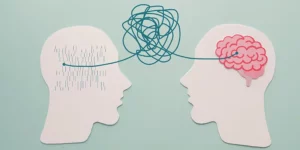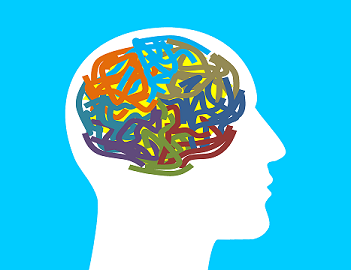Mental health is a vital part of overall health and well-being. If you are struggling with mental health issues, it can be difficult to cope with day-to-day life. Thankfully, integrative psychiatry can provide the help you need. This approach to psychiatry combines traditional therapies with complementary and alternative treatments, such as meditation and acupuncture. In this blog post, we will discuss the benefits of integrative psychiatry, and other things that you might need to know.
Contents
What Is Integrative Psychiatry?
 Integrative psychiatry is a branch of medicine that takes a holistic approach to mental health care. It integrates conventional psychiatric treatment with complementary and alternative therapies to address the mind, body, and spirit.
Integrative psychiatry is a branch of medicine that takes a holistic approach to mental health care. It integrates conventional psychiatric treatment with complementary and alternative therapies to address the mind, body, and spirit.
This type of care is rooted in the belief that mental health is impacted by physical, emotional, social, spiritual, and environmental factors. Moreover, this approach recognizes that each person is unique and therefore requires an individualized treatment plan.
The goal of integrative psychiatry is to help people attain optimum mental health and well-being. And they do this by addressing the underlying causes of mental illness, rather than just treating the symptoms.
Therefore, it is important to work with a mental health professional who is trained in integrative psychiatry to receive the most comprehensive and individualized care possible.
How Does It Work?
The key to integrative psychiatry is finding the root cause of mental health issues and then addressing them with a comprehensive approach. This may include traditional methods as well as alternative treatments. The goal is to create a customized treatment plan that will work for each individual.
It works by taking a comprehensive approach to mental health care. This means that practitioners look at the whole person, not just the symptoms. They also consider the mind, body, and spirit when developing a treatment plan. This approach can help to address the root cause of mental health issues instead of just treating the symptoms.
It is still a relatively new field, but integrative psychiatry is gaining popularity. This is because it offers a more holistic approach to mental health care. If you are interested in finding an integrative psychiatrist, you can search for one in your area. You can also ask your regular doctor for a referral.
What Methods Do Integrative Psychiatry Use?
 There are various approaches to integrative psychiatry. The most common one is the use of medication along with psychotherapy. Other approaches include:
There are various approaches to integrative psychiatry. The most common one is the use of medication along with psychotherapy. Other approaches include:
Supplements
It is not uncommon for people with mental health conditions to have deficiencies in certain vitamins and minerals. So advising supplements is one of the methods of integrative psychiatry. It can help to improve mood and cognitive function while also providing other health benefits.
Diet
What you eat has a big impact on your mental health. So integrative psychiatrists often recommend making dietary changes to improve symptoms. This might involve eating more nutrient-rich foods, cutting out processed foods, or following a specific diet like the ketogenic diet.
Acupuncture
It is a form of alternative medicine in which thin needles are inserted into the body. It is a key component of traditional Chinese medicine (TCM). Acupuncture is used to treat a variety of conditions, including pain, nausea, fatigue, and anxiety. A 2009 systematic review of clinical trials concluded that “there is insufficient evidence to recommend acupuncture for the treatment of fibromyalgia.”
Therapies
Therapies are always considered to be the first line of treatment for mental disorders. And in integrative psychiatry, a specialist uses some therapy techniques to help you. The therapist will help you to understand your thoughts and feelings. They can also give you some tools to manage your symptoms.
Medications
 It is important to understand that medications are only one tool in the integrative psychiatry toolbox. Medications can be very helpful, but they do not work for everyone and they are not always the best option.
It is important to understand that medications are only one tool in the integrative psychiatry toolbox. Medications can be very helpful, but they do not work for everyone and they are not always the best option.
In addition, some other methods can be used to supplement or replace medications:
- Psychotherapy
- Herbs
- Meditation
- Mindfulness training
- Relaxation techniques
- Exercise
- Nutrition counseling
- Sleep hygiene education
If you are interested in exploring integrative psychiatry, please talk to your mental health professional. They can help you figure out what might work best for you.
What Conditions It Can Help With?
Integrative psychiatry is most commonly used to help treat anxiety and depression, but it can also be effective in treating other mental health conditions like:
- Bipolar disorder
- Eating disorders
- Post-traumatic stress disorder (PTSD)
In addition to treating mental health conditions, integrative psychiatry can also help improve overall well-being and quality of life. So do not hesitate to ask your doctor about integrative psychiatry if you feel like it could be right for you.
In fact, it is estimated that one in four adults will experience some form of mental illness each year. And while there are many different types of mental illnesses, they all have one thing in common: they can significantly impact a person’s ability to function in their day-to-day life. So, seek help from a mental health professional if you are struggling.
What Are The Benefits?
 Integrative psychiatry is a comprehensive approach to mental health care that takes into account the whole person – mind, body, and spirit. This type of care can address the root causes of mental illness and help you heal on all levels.
Integrative psychiatry is a comprehensive approach to mental health care that takes into account the whole person – mind, body, and spirit. This type of care can address the root causes of mental illness and help you heal on all levels.
Some of the benefits of integrative psychiatry include:
- Improved mental health: When all aspects of your health are considered, you can experience improved mental well-being.
- Reduced stress: An integrative approach can help you manage stress and reduce its impact on your overall health.
- Better physical health: Addressing your physical health needs can improve your overall well-being.
- Increased self-esteem: This comprehensive approach can help you feel better about yourself and your ability to cope with mental illness.
- Improved quality of life: By taking a comprehensive approach to your care, you can improve your overall quality of life.
These benefits can help you feel better physically, mentally, and emotionally. If you are considering integrative psychiatry, be sure to discuss it with your mental health care provider to see if it is right for you. You deserve comprehensive care that meets all of your needs.
Are There Any Side Effects?
There are some side effects of medications used in integrative psychiatry, but they are usually mild. The most common side effects include:
- Dry mouth
- Drowsiness
- Nausea
- Headache
- Weight gain or loss
- Sexual problems
These are very common side effects of psychiatric medications and usually go away after a few weeks of treatment. If you are concerned about any of these side effects, please talk to your doctor. Because integrative psychiatry uses a combination of treatments, the side effects may be different for each person.
All in all, this type of psychiatry seems to have a lot of potential for people who are struggling with mental health issues. If you are looking for an alternative to traditional psychiatry, consider integrative psychiatry. It may be just what you need to start feeling better.
Conclusion
In conclusion, integrative psychiatry can offer many benefits for those struggling with mental health issues. By addressing the root cause of your symptoms, integrative psychiatry can help you find relief from your symptoms and improve your overall well-being. If you are considering integrative psychiatry for your mental health needs, be sure to consult with a qualified practitioner to ensure that it is the right treatment for you.
However, if you are still doubtful about integrative psychiatry, consider this: it is a holistic approach that not only looks at your symptoms but also tries to understand the underlying cause of your condition. It also takes into account your lifestyle and environment when trying to address your mental health needs. This is in contrast to traditional psychiatry which focuses solely on medications and symptom management.
For more information and guidance please get in touch with our expert therapists at Therapy Mantra. They will be more than happy to assist you on your journey to recovery. Contact us today to learn more about our services. You can also book an online therapy session or download our free Android or iOS app.


